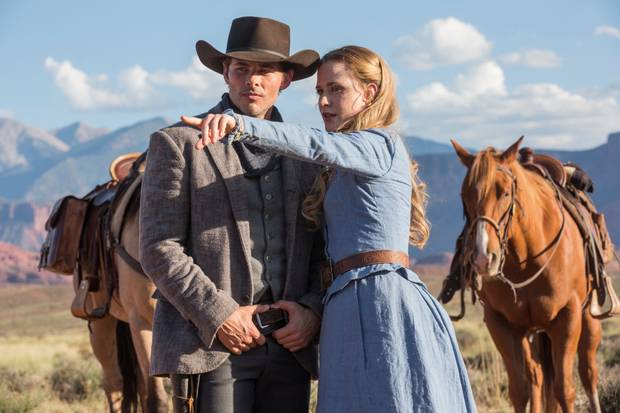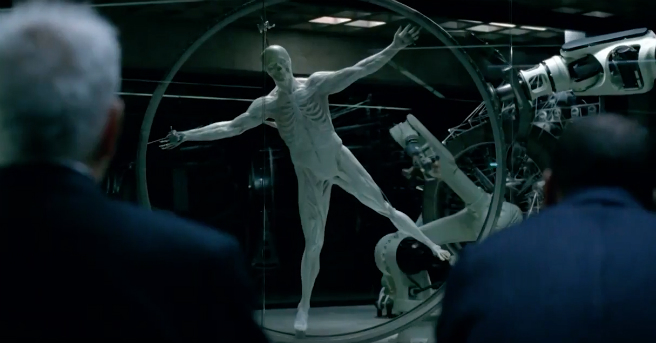HBO’s new drama Westworld has immersed TV audiences into it’s beautiful production of fantasy and science fiction in it’s first few episodes

Audiences have been anticipating the debut of Westworld ever since it’s strong production team trio of Jonathan Nolan (Dark Knight screenwriter), Lisa Joy (Burn Notice.), and J.J Abrams (Star Wars Force Awakens Director) were given the task of leading this goliath of a show into a tangible reality. After months of waiting, Westworld has arrived… and it’s first four episodes do not disappoint. The production value of Westworld is apparent from the first moment you step into it’s wide, fantastical sphere. The sets are extravagant, the casts are deep with talent, and the story is infinitely polished. A viewer would expect nothing less from the prestigious network: HBO.
Set in the rugged backdrops of the old wild west, the fictional Westworld is a technologically advanced, Western-themed amusement park populated completely by synthetic androids dubbed ‘hosts’. The first episode introduces us to Westworld high-paying visitors dubbed ‘newcomers’ (also known as ‘guests’), who can do whatever they wish within the park, without fear of retaliation from the hosts.
This leads to a narrative that plays out in an interesting conflict between the upper management of Westworld and the synthetic but ever so human looking androids. While the first two episodes explore the grandeur, excitement and construction of the park, the latter two expand on a plot line that alludes to a bigger and darker picture that upper management has for the future of Westworld.

What is equally impressive with its production value, is the shows capability of blending social and technological commentary into a heap of endless streaming thoughts. In the ever advancing world of virtual reality, Westworld sparks thoughts of a virtual reality haven that may not be too far off. The world speaks to our generation’s desire to feel, and experience a perfect simulation of the human existence in a virtual world that we can actually control.
Westworld’s creator Dr Robert Ford, played by Anthony Hopkins, has spent forty years adding features to the synthetic androids in an effort to make them seem as realistic as possible. The androids react with a slew of emotions much in the same way a human would. At the end of introductory episode, the viewer finds out that the androids have become increasingly realistic and are able to harbor backstories and likenesses to the human psyche. The television series then begs the question… what makes the androids different from humans? Perhaps an ode to Bladerunner?
Westworld promises to be a huge success for HBO moving forward, as we expect the show to become increasingly intricate and increase in production value. With the first four episodes wrapped up, there are only six left, with the next one airing on Sunday, October 30th.






